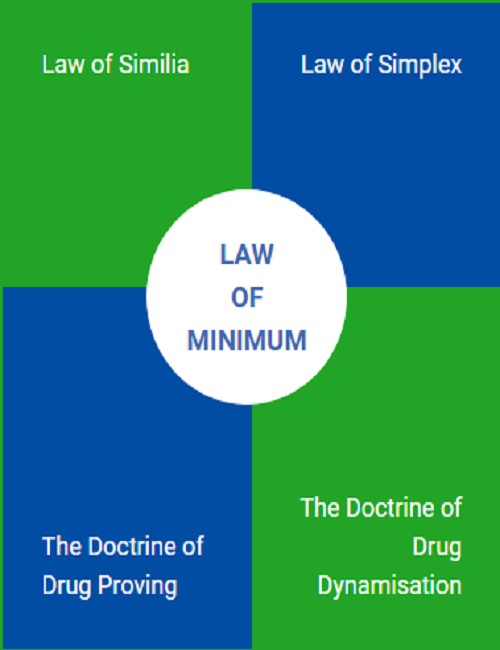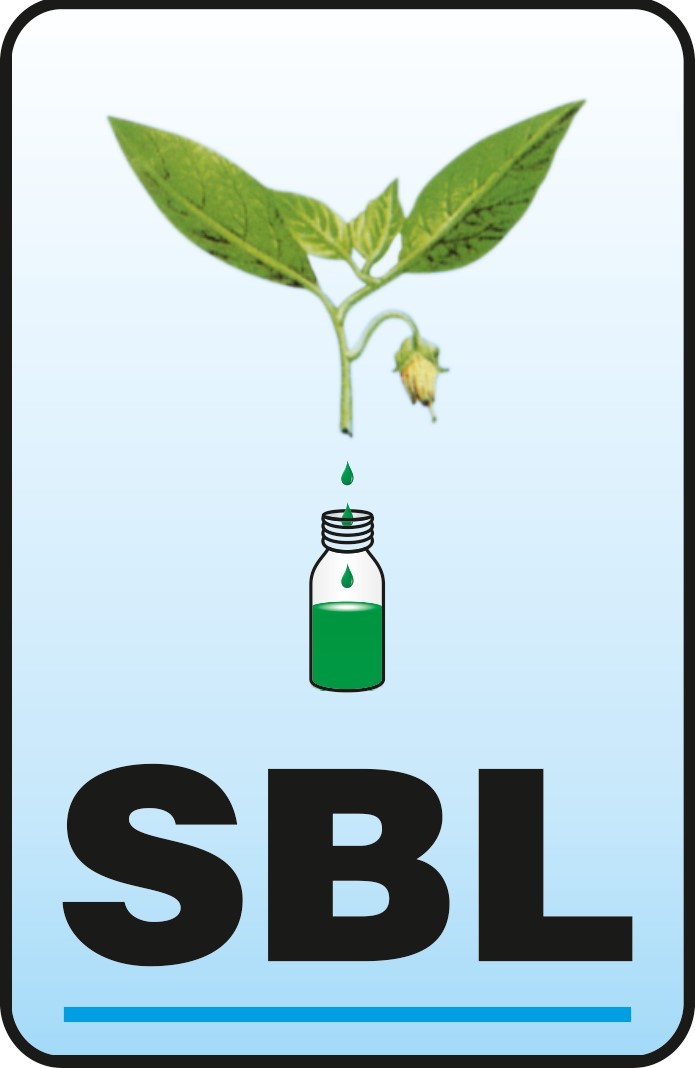
WHAT IS HOMOEOPATHY?
Homoeopathy is a natural form of medical science which is based on nature’s law, “LIKE CURES LIKE”. Homoeopathic medicines are used by more than 200 million people across the world to treat acute and chronic ailments. As per the homoeopathic law, solutions are chosen based on the symptoms of the patient (exact similimum) and the emphasis is laid on treating the root cause of the disease and annihilating it permanently in its whole extent. Since Homeopathic medicines are diluted and dynamic, there are usually no side effects and can be safely consumed by people of all age groups.

HISTORY OF DISCOVERY:
Christian Friedrich Samuel Hahnemann (1755-1843), a German physician, discovered the alternative system of medicine called homeopathy. In the year 1790, while translating Cullen’s Materia Medica, he read about the therapeutic properties of the Peruvian bark (Cinchona Officinalis). According to that research, its medicinal properties could cure intermittent fever. Hahnemann was dissatisfied with this explanation and the way the experiment was conducted. To gain clarity, he started taking the same medicine twice a day himself and eventually noticed that the symptoms were quite similar to ague of Malaria fever. This unexpected result brought varied thoughts to his mind and he started conducting similar experiments with different medicines on himself as well as other individuals. Based on many such successful experiments, Hahnemann concluded that medicines could cure diseases because they can also produce similar diseases in healthy individuals.

CONCEPTS & PRINCIPLES OF HOMEOPATHY
The homeopathic system is based on easily comprehensible principles. They are as follows –
Law of Similia: – Medicines which are capable of producing similar symptoms during medication.
Law of Simplex: – Only one medicine is to be applied in a given case at a given time
Law of Minimum: – Using the minimal amount or the smallest quantity of medicine which is sufficient to produce an artificial disease on the vital force is similar to the natural disease.
The Doctrine of Drug Proving: – A systematic process of investigating the pathogenic power (disease curing power) of the medicine by administering it to different healthy human beings of both sexes, different ages and various constitutions. Noting down those symptoms becomes the symptoms of the drug.
The Doctrine of Drug Dynamisation: – It is a process, which liberates the inherent power of curative properties of a drug which remain in a latent state through the process of succussion or trituration.

HOMEOPATHY
- It treats the patient according to the symptoms
- It is non-toxic and does not have potent side effects
- Helps to eliminate the problem from the root
- Stimulates the immune system which in turn helps to heal the patient naturally
- Does not suppress the symptoms
- Homeopathy is a holistic method of treatment and works by treating the person and not a particular organ or part

ALLOPATHY
- It treats the patient according to the disease
- Most medications have some side effects
- Can affect the immune system of the body
- Shows almost instant results but suppresses the symptoms of the disease

ADVANTAGES OF HOMOEOPATHIC SYSTEM OF TREATMENT
Homeopathy was discovered more than 200 years ago by a German allopathy physician, Dr Samuel Hahnemann who was looking for ways of curing diseases that could not be treated with conventional medicines. He observed that the prevalent system of medicine was suppressing the disease rather than treating it. His various observations revealed that diseases not just affect the body, but also the mind and emotions. Therefore, to heal, medicine should also be able to affect the mind, emotions and body. Homeopathy is a scientific system of medicine based on the principle, "Similia Similibus Curentur” which means“Let likes be treated by likes”. In homeopathy, the drugs are majorly sourced from herbs and animal minerals. These are given to healthy human subjects in diluted and non-toxic doses to produce symptoms. The symptoms produced in healthy humans are the curative action of that particular drug. When a patient comes to a Homoeopath, the symptoms are noted and then matched with the symptoms of the drug (a vast number of medicines are available in homoeopathic literature) and a similar drug is given for effective treatment.
HOMEOPATHY
Though homoeopathy can treat most of the diseases related to the human body, given below are some ailments patients may opt for better results-
- Allergic disorders: Bronchial asthma, allergic rhinitis, urticaria
- Skin problems: Dermatitis, Eczema, Psoriasis, Warts
- Viral fevers
- Sinusitis
- Tonsillitis
- Hair fall, Alopecia
- Liver complaints
- Renal calculi
- Piles and Fissures
- Chilblains & cracked and bleeding soles due to exposure to high altitude temperatures
- Sea Sickness
The above mentioned are all chronic problems where only temporary relief or palliation can be achieved by conventional medicines. With homeopathy, these problems can be effectively treated.

BENEFITS OF HOMOEOPATHIC TREATMENT ARE AS UNDER:-
- The correct homoeopathic medicine Initiates the healing tendency of the body very gently. Thus, treats the person by building his immunity.
- Homoeopathy cures the sick person and not just the disease. It cures diseases from their roots. So many chronic diseases that are seen running in families can be treated by Homoeopathy.
- Homoeopathic treatment aims at stimulating the body's own defensive system, thereby enhancing the body's resistance to fight diseases.
- Homoeopathy is the safest mode of treatment for children.
- It is equally effective in the treatment of acute as well as chronic diseases.
- It can be safely given to pregnant & lactating women.
- The popularity of Homoeopathy is due to its simplicity in administering, and no known side effects.
- These medicines are inexpensive and very much affordable.
- In many cases, surgery may be avoided if treated with homoeopathy.
- Homoeopathy can also be given along with allopathic medication with no interactions.
- Homoeopathic medicine is a non-invasive method of treatment.
- The treatment relies on the patient's symptoms and not on expensive diagnostic tests.
- Homoeopathic remedies are readily available.
- Homoeopathic remedies can be stored for long periods of time.

Goodness of Homoeopathy
Homeopathy is a pharmaceutical science based on laws of nature. The system uses various plants, minerals and organic matter in very small doses to stimulate the sick person's natural defenses. Homeopathy is coined from the Greek word "Homoios" meaning 'similar' and "pathos" meaning 'disease' or 'suffering'. It is based on the principle of Similia Similibus Curentur which means "Let like be treated by likes" Homoeopathic medicines do not suppress, but strengthens the immune system and is aimed at removing or eradicating the disease from its roots. As maladies are increasing so are medication, but alternative medicine is now taking a leap forward due to its efficacy and safety in long-term use. Homeopathy is currently growing fast due to its efficacy & affordability and because of “No Side effects”. Homeopathy is a unique system of medicine based on natural principles.
Myths & Facts about Homoeopathy
Fact: No. Homeopathy is a proven system of medicine
Fact: Homeopathy is not slow-acting. It acts well in acute cases as well as in chronic cases. It depends on the severity of the disease condition.
Fact: Homeopathic medicines can be taken along with other systems of medicine. The doctor will recommend keeping a one-hour interval between the medicines, i.e., homeopathic medicine and conventional system medicine.
Fact: Homeopathy treats cases of piles, warts, and renal stones without any complications.
Fact: The minute sugar content in globules is not harmful to diabetic patients.
Fact: It is advisable to cut down on raw onions, raw garlic, strong coffee, and mint, as they are antidotes to some of the homeopathic medicines and interfere with the treatment process.
Fact: Sugar globules or white pills are just a medium used by homeopaths to facilitate medicinal intake.





 Home
Home  Whishlist
Whishlist  Checkout
Checkout 